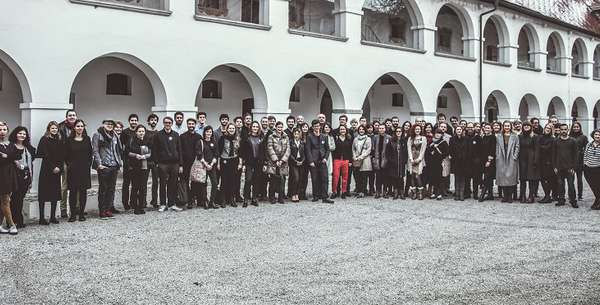Idea by
Debray Côme, Jaquet Michel, Wardak Feda, Szlamka Youri
Aman Iwan
Call for ideas 2016
Diktyotopia
Diktyotopia
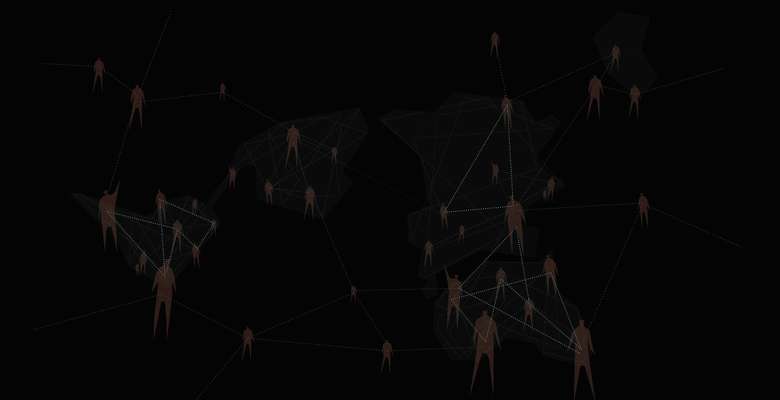
Freedom of creation is constrained by modern societies’ standards and regulations. Architects are supposed to think and challenge but have become tools of execution. They are subjugated to politics, instead of being actors of it. Architecture tends to homogenise itself in a trend of unquestionned thoughts and actions.
Aman Iwan proposes an alternative and committed architecture, where returning to fundamental principles, sharing knowledge and focus on a local scale seem essential. Create architecture for the people, by the people, preserving vernacular knowledge and ways of living through an global network associating micro-scale systems. Exchanging, rather than imposing - in order to learn from each other. Working with other disciplines, and not confronting them. This process of intervention concretely translates locally into observation, diffusion and action, in a defined time scale and keeping in mind the importance of local context, knowledge, culture, and organisation.
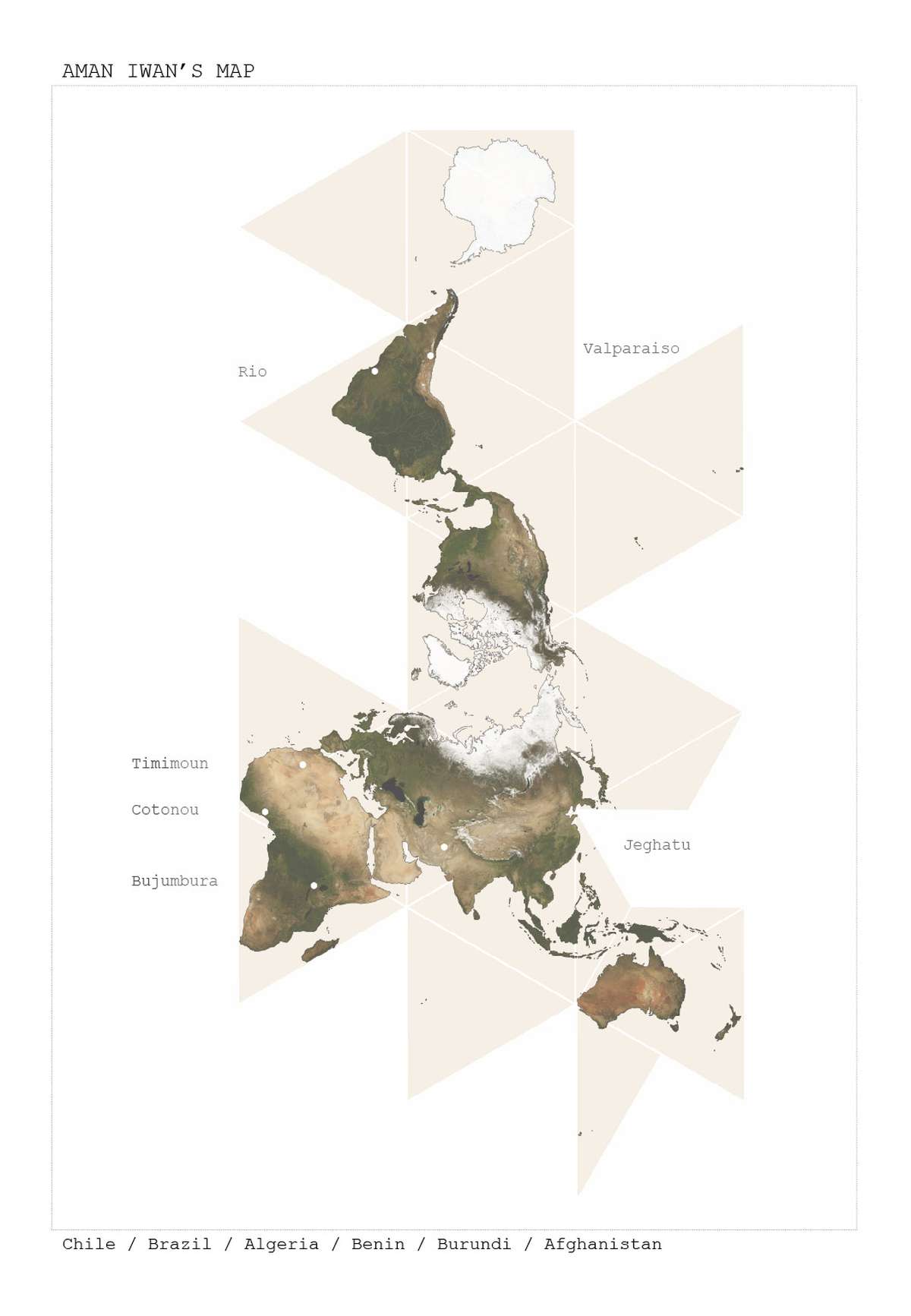
A scalable map, showing Aman Iwan’s current concerned territories. It evolves with time with the addition of new areas, and will soon display the networks, projects and encounters of the collective.
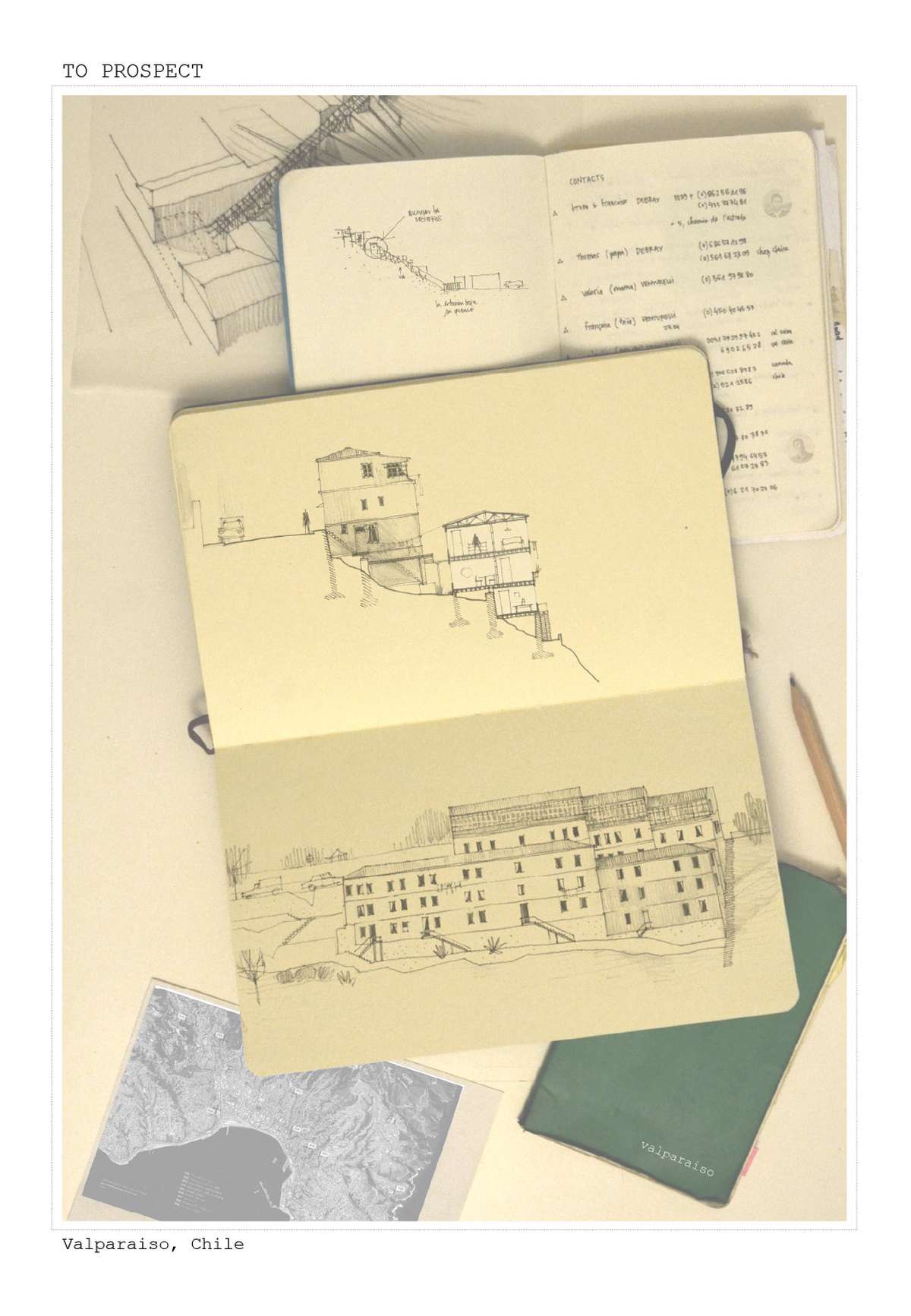
With travels and experiences, Aman Iwan tries to collect, gather and identify – through individual and collective travel logs – data, impressions and information for future meetings, projects or publications.
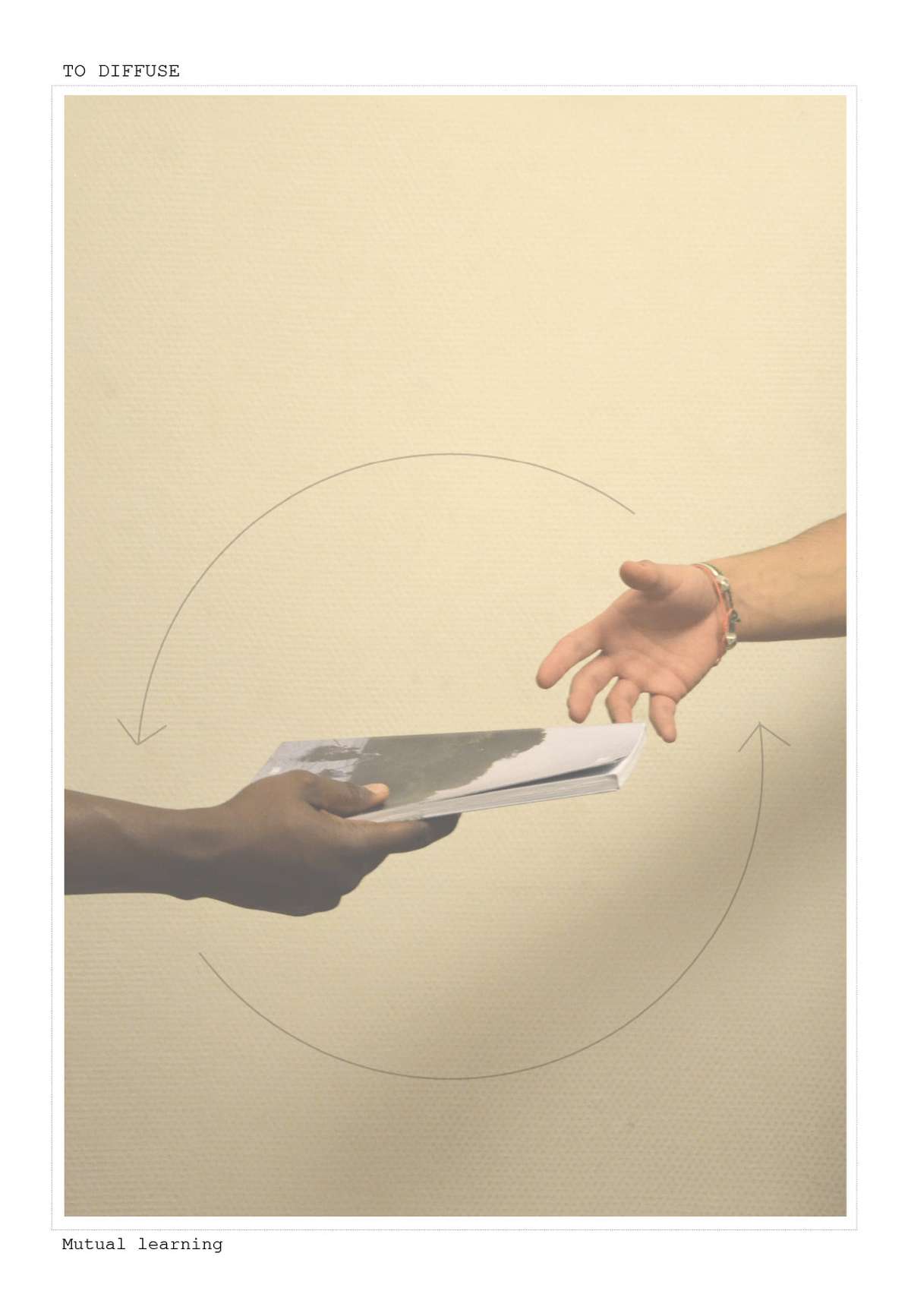
The journal is a tool of diffusion for prospective investigation, and will be further sent to the territories mentioned by the periodical issues – as a first step of engagement from the collective on its future action in the concerned regions.
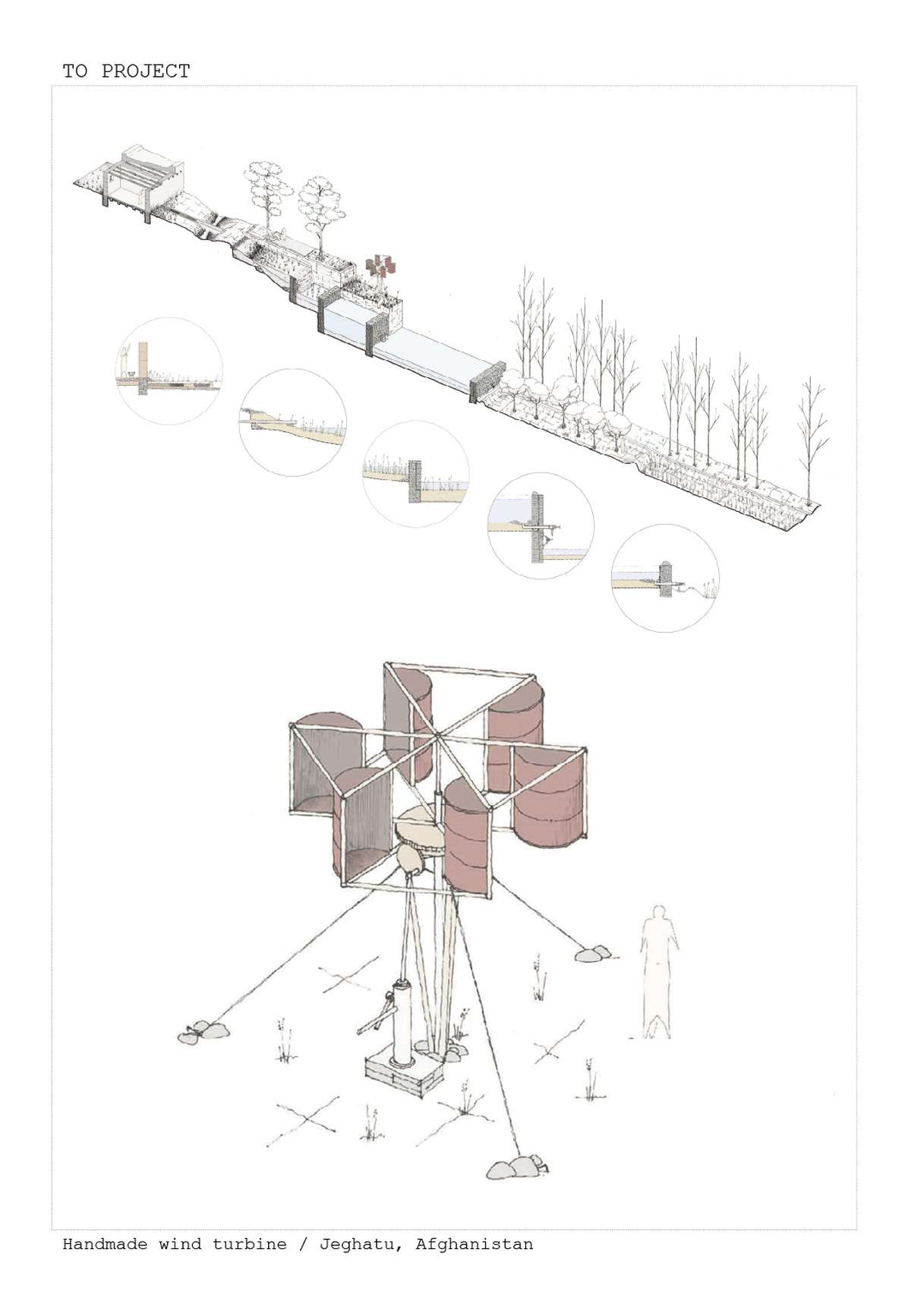
From these prospective field investigations, the collective projects on different scales, which will often be local-oriented, considering vernacular knowledge and socio-cultural constraints.
This micro-scale project consists of an artisanal wind turbine and water-mill, capable of pumping ground water from wind power, an energy still unexploited locally. The project is a reaction to the droughts occurring in the area, which had a considerable impact on agriculture – the region’s main activity.
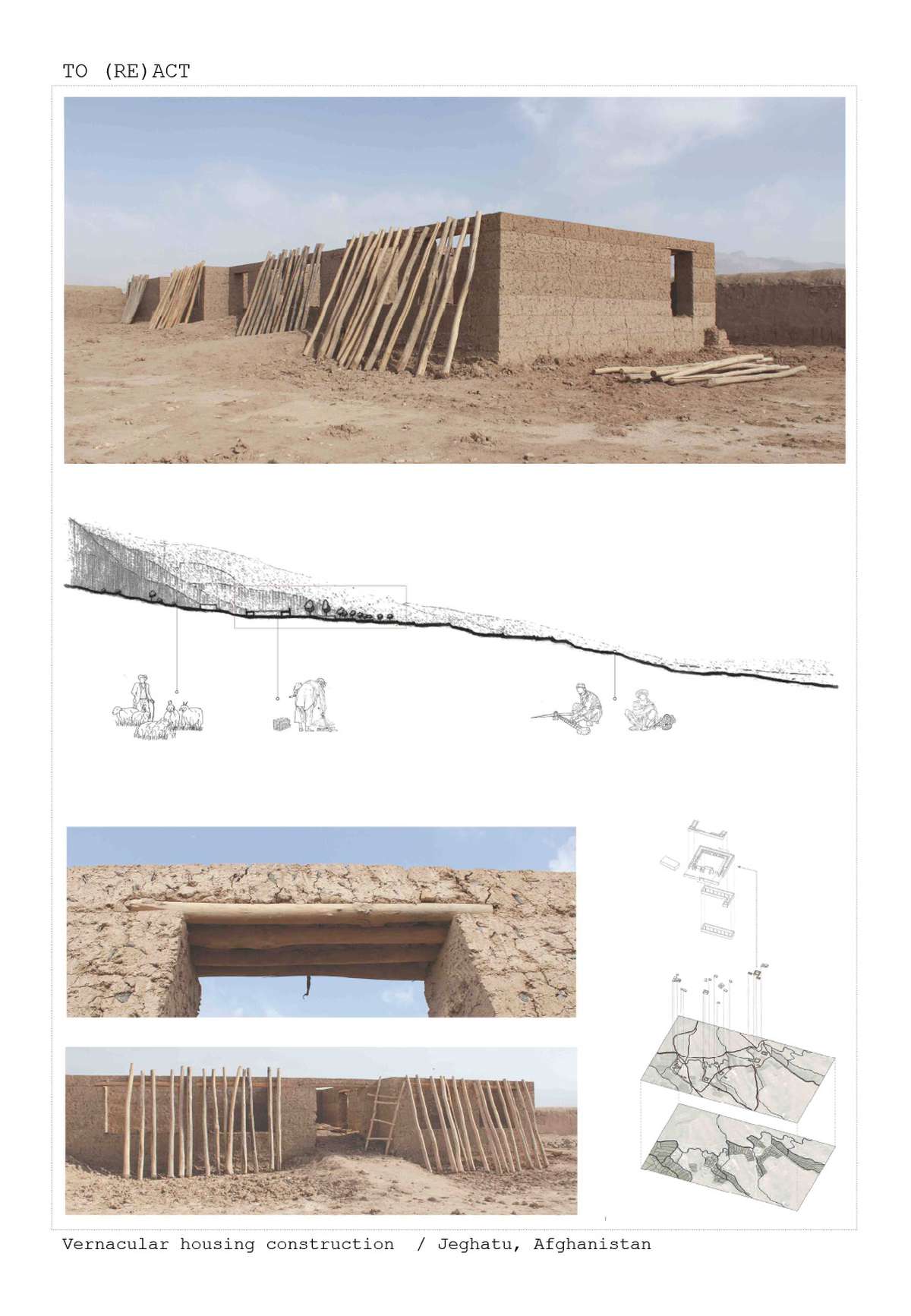
On a long-term basis, the collective aims to take action on concerned territories. This example shows a vernacular construction that respects climatic conditions and local knowledge. Jeghatu, Afghanistan.
Diktyotopia
Diktyotopia

Freedom of creation is constrained by modern societies’ standards and regulations. Architects are supposed to think and challenge but have become tools of execution. They are subjugated to politics, instead of being actors of it. Architecture tends to homogenise itself in a trend of unquestionned thoughts and actions.
Aman Iwan proposes an alternative and committed architecture, where returning to fundamental principles, sharing knowledge and focus on a local scale seem essential. Create architecture for the people, by the people, preserving vernacular knowledge and ways of living through an global network associating micro-scale systems. Exchanging, rather than imposing - in order to learn from each other. Working with other disciplines, and not confronting them. This process of intervention concretely translates locally into observation, diffusion and action, in a defined time scale and keeping in mind the importance of local context, knowledge, culture, and organisation.
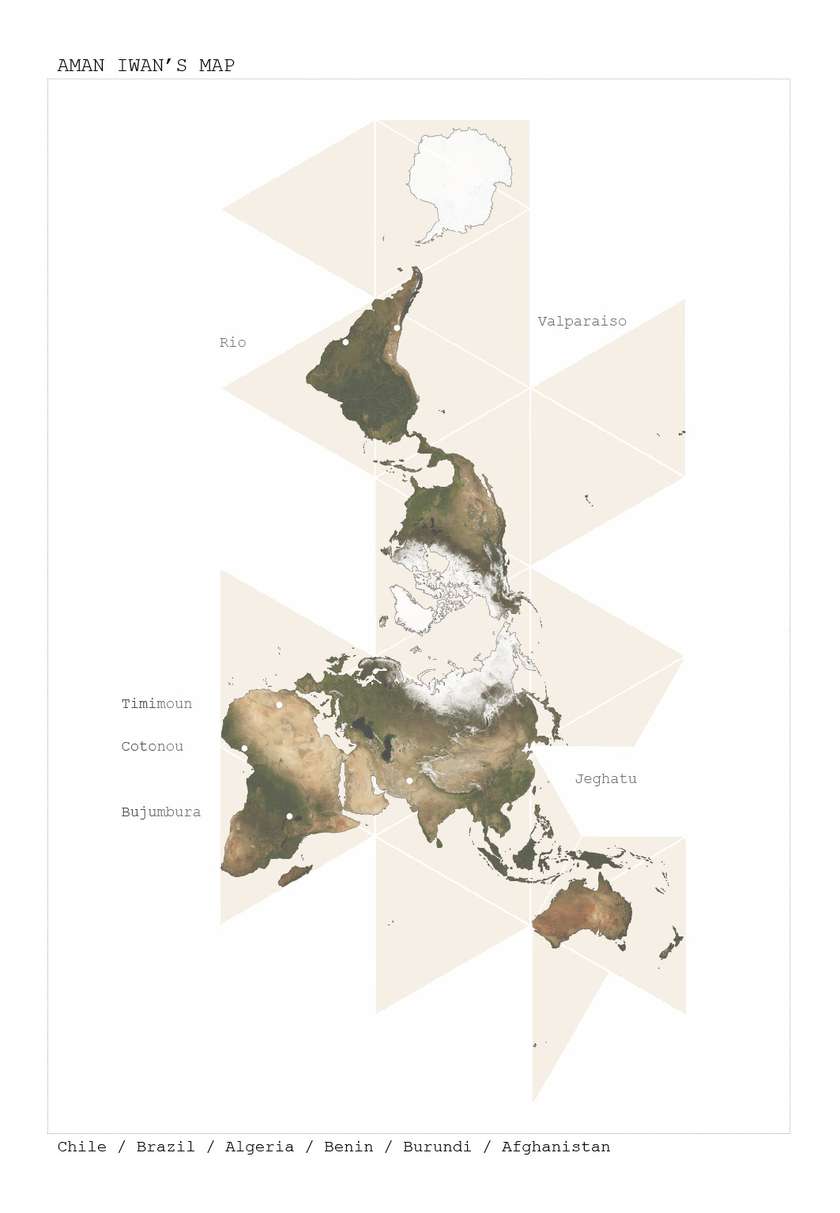
A scalable map, showing Aman Iwan’s current concerned territories. It evolves with time with the addition of new areas, and will soon display the networks, projects and encounters of the collective.
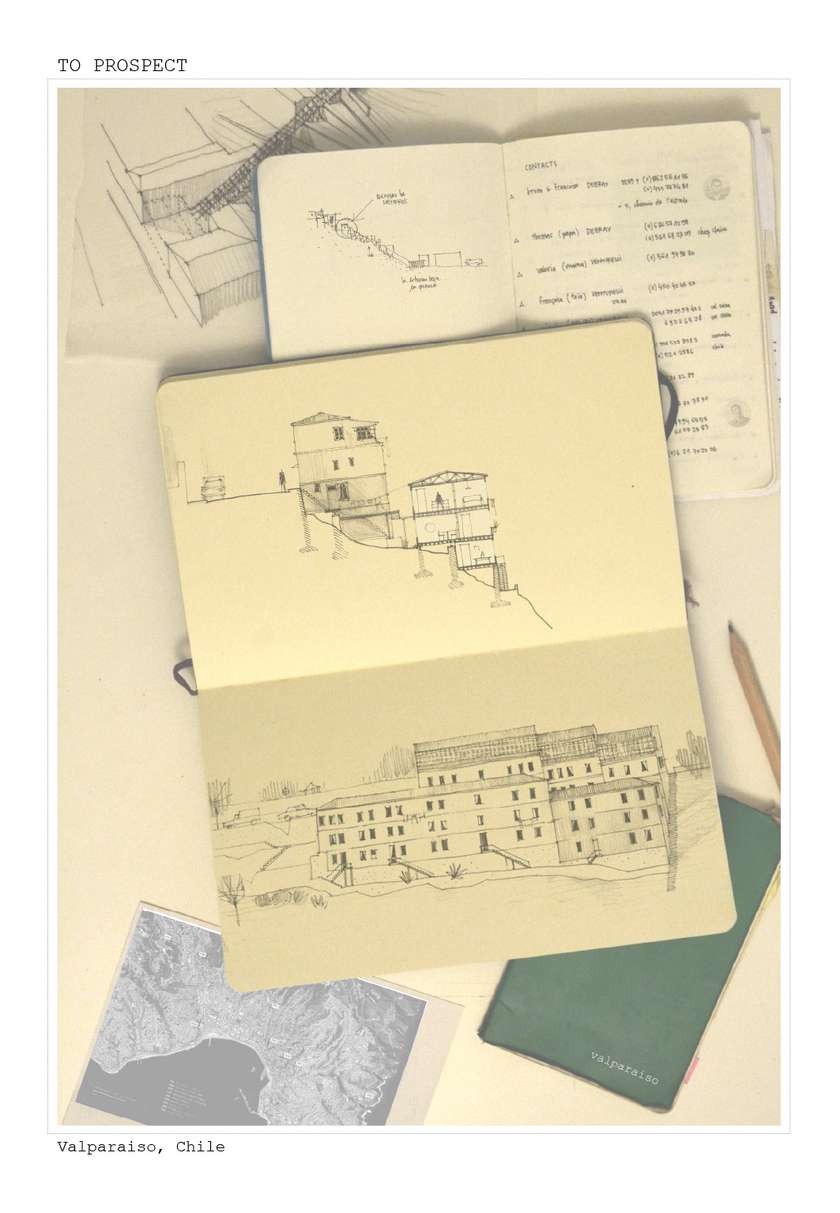
With travels and experiences, Aman Iwan tries to collect, gather and identify – through individual and collective travel logs – data, impressions and information for future meetings, projects or publications.
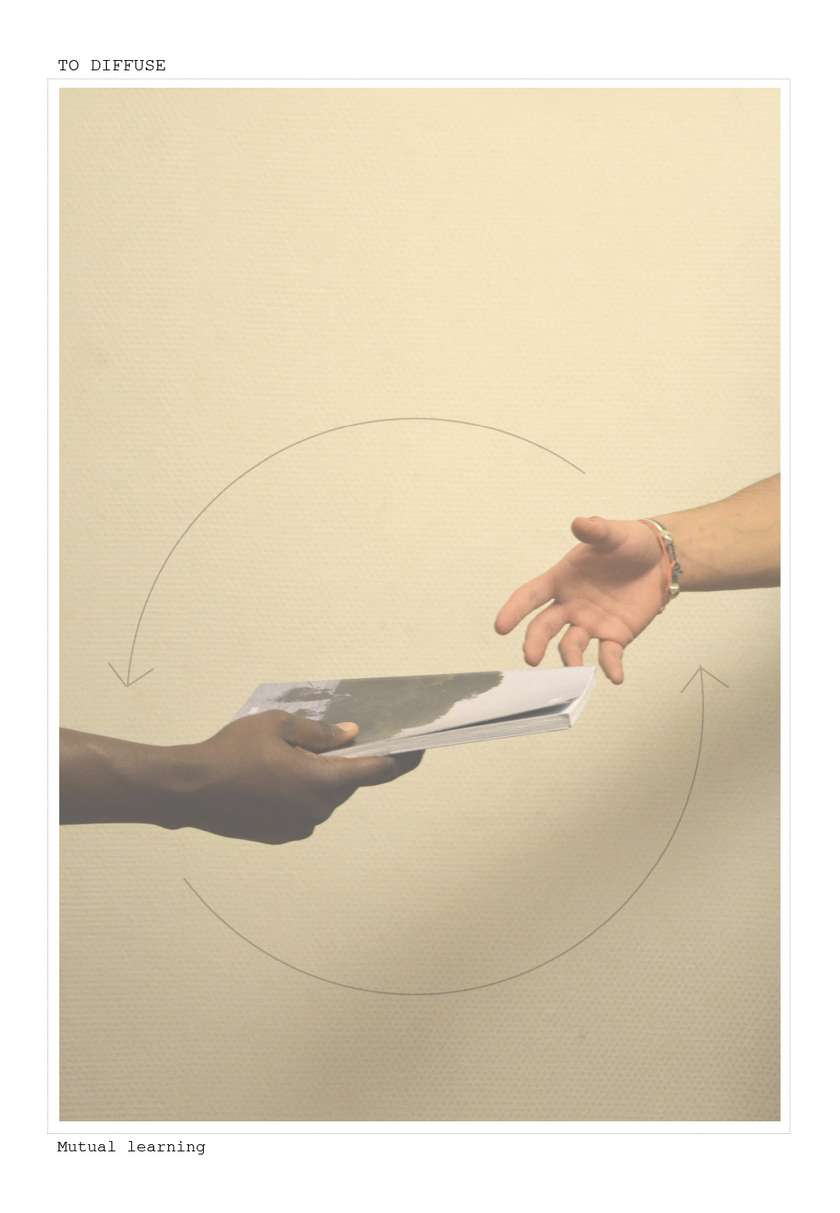
The journal is a tool of diffusion for prospective investigation, and will be further sent to the territories mentioned by the periodical issues – as a first step of engagement from the collective on its future action in the concerned regions.
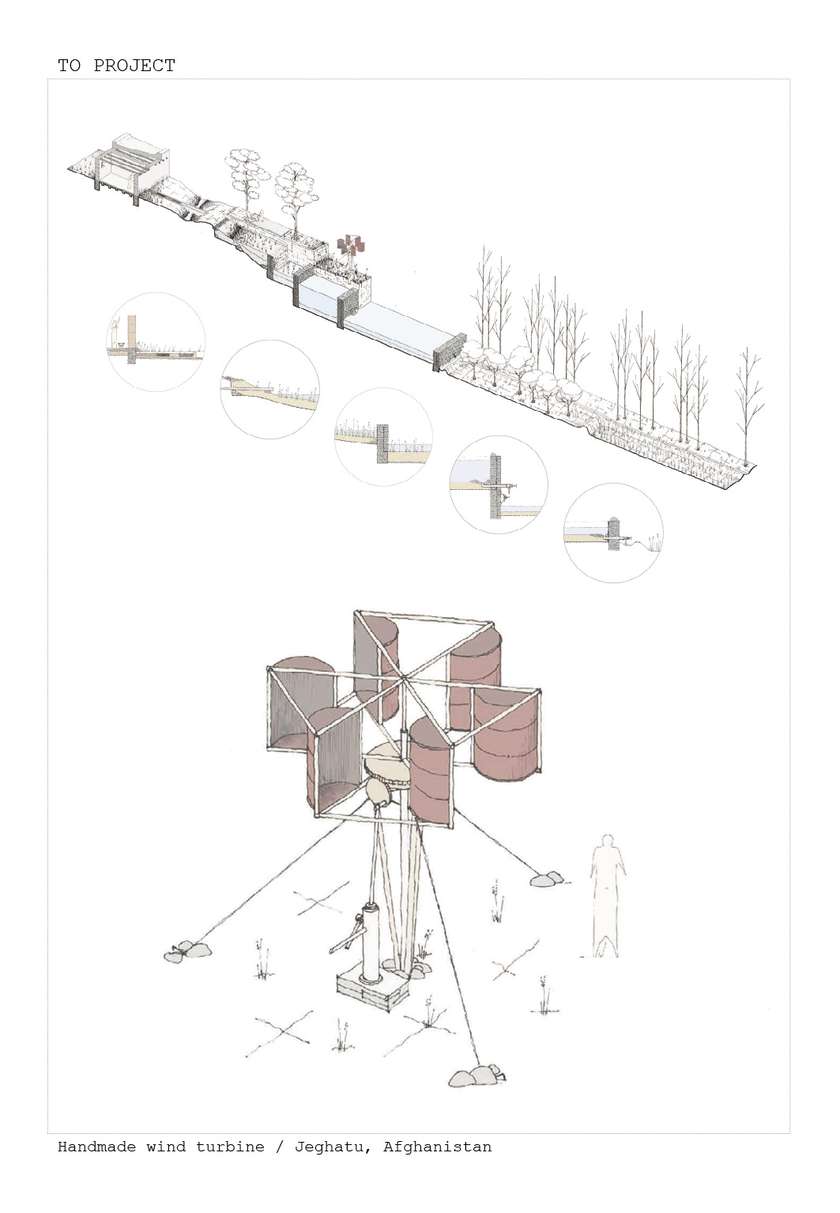
From these prospective field investigations, the collective projects on different scales, which will often be local-oriented, considering vernacular knowledge and socio-cultural constraints.
This micro-scale project consists of an artisanal wind turbine and water-mill, capable of pumping ground water from wind power, an energy still unexploited locally. The project is a reaction to the droughts occurring in the area, which had a considerable impact on agriculture – the region’s main activity.
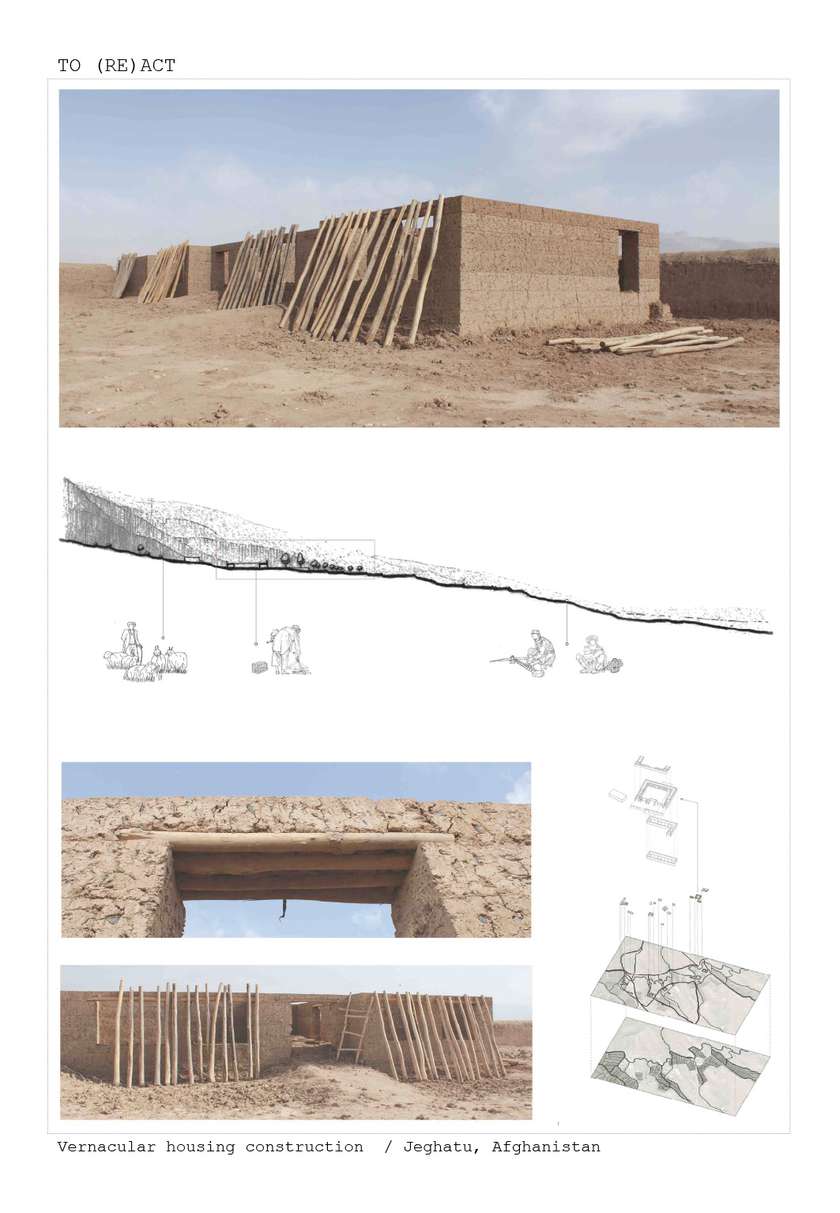
On a long-term basis, the collective aims to take action on concerned territories. This example shows a vernacular construction that respects climatic conditions and local knowledge. Jeghatu, Afghanistan.
